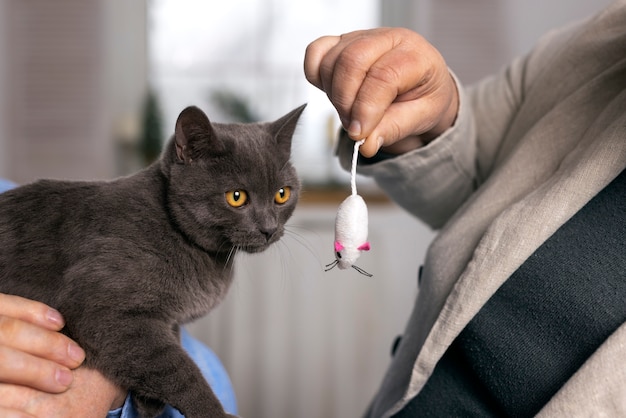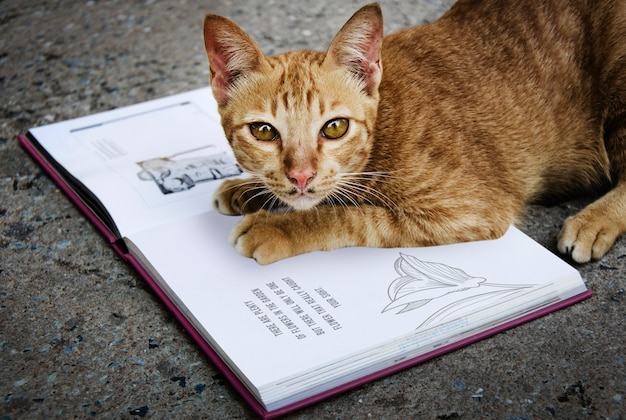September Pet Care Tips for Buford’s Warm, Humid Weather

September Pet Care Tips for Buford’s Warm, Humid Weather
As September arrives in Buford, pet owners often wonder how shifting temperatures and high humidity can impact their furry friends. The summer heat may start to ease, but the lingering humidity and unpredictable weather transitions create unique challenges for local pets. At Express Vets Buford, located at 4108 Hamilton Mill Road, Suite 310, Buford, GA 30519, we understand how the region’s climate can influence pet health. Our team of veterinarians is committed to helping families in Buford and surrounding communities keep their pets comfortable, healthy, and safe as summer fades into fall.
In this guide, you’ll discover practical September pet care tips tailored to Buford’s warm, humid climate. We’ll address hydration strategies, parasite prevention, allergy awareness, and ways to recognize early signs of weather-related health issues. You’ll also learn when it’s time to schedule a wellness examination to ensure your pet is thriving. Whether you’re searching for advice on keeping your dog cool during muggy afternoons or wondering about the best parasite prevention in Buford, our veterinary team is here to support you every step of the way.
For pet owners looking for a "vet near me" who truly understands the local climate and its effect on animals, Express Vets Buford provides experienced, compassionate primary care. If you’re concerned about hydration, itching, or seasonal discomfort, our wellness exam and pet examination services are designed to catch issues early and keep your companion feeling their best.
Recognizing Pet Health Issues in Buford’s September Weather
Common Symptoms to Watch For
September’s weather in Buford often brings lingering humidity, fluctuating temperatures, and bursts of rain. These conditions can set the stage for certain pet health concerns. Key symptoms to monitor as seasons change include increased scratching or licking, which may indicate skin allergies; visible hot spots or skin redness, which can flare up in warm, damp conditions; and lethargy or reluctance to exercise, which may signal dehydration or heat fatigue. Additional signs such as persistent panting, coughing, sneezing, watery eyes, or a reduced appetite are also important to note. In some pets, especially dogs who spend more time outdoors, symptoms like scooting, visible fleas or ticks, or unexplained weight loss may reveal underlying parasite issues. If you notice these changes in your pet’s behavior or appearance, it’s wise to consult with your veterinarian promptly.
How Humidity Affects Your Pet
Buford’s humidity can be more than just uncomfortable—it can also exacerbate certain conditions. Dogs and cats cool themselves less efficiently than humans, so high humidity, even in moderate temperatures, increases the risk of overheating. Pets with thick coats, short noses, or underlying health conditions may be especially vulnerable. Additionally, humid weather can create an ideal environment for fleas, ticks, and mosquitoes to thrive, elevating the risk of parasite-borne diseases. Some pets may develop skin infections or allergies during this transitional period, as excess moisture promotes bacterial growth and irritation. Recognizing these risks early allows pet owners to act before minor discomfort becomes a more serious health issue.
Understanding the Causes: Why September Weather Poses Risks
The Role of Buford’s Climate and Seasonal Changes
September in Buford is marked by persistent humidity, warm afternoons, and occasional storms. This creates a prime environment for external parasites such as fleas, ticks, and mosquitoes, which remain active until the first consistent cold snap. Standing water from rain showers offers breeding grounds for mosquitoes, while uncut grass and brush can harbor ticks. The combination of heat and dampness may also trigger flare-ups of environmental allergies, with pollen, mold, and dust remaining prevalent. For many pets, especially those with sensitive skin or pre-existing allergies, the transition from summer to fall can mean increased itching, hair loss, or skin infections.
Impact on Hydration and Respiratory Health
Humidity affects how efficiently pets can cool themselves. Dogs pant to shed excess heat, but humid air means less evaporation, so panting becomes less effective. This can lead to subtle dehydration over time, especially if pets are reluctant to drink warm water or lose fluids through increased panting. The combination of pollen, dust, and mold can also worsen respiratory symptoms in sensitive pets. Owners may notice increased sneezing, coughing, or nasal discharge, particularly in animals already prone to seasonal allergies.
Professional Treatment and Prevention Strategies
Parasite Prevention in Buford
Maintaining effective parasite prevention and control is essential during Buford’s humid September. Our veterinary professionals advise year-round protection, as fleas, ticks, and mosquitoes can remain active well into autumn. Treatment options involve monthly oral or topical preventives that target fleas, ticks, and heartworms. For dogs, heartworm prevention is especially important due to the prevalence of mosquitoes in the area. Cats, even those living primarily indoors, benefit from regular parasite control since mosquitoes and fleas can enter the home. When you visit for a wellness examination, our veterinarians can recommend the most effective, safe products for your pet’s lifestyle and risk factors.
Allergy Management and Skin Health
Skin discomfort is common during humid weather, and our team offers allergy testing to pinpoint specific triggers. For pets suffering from persistent itching, redness, or hair loss, allergy management may include shampoos, medicated wipes, or dietary changes. Veterinary dermatology evaluations can help diagnose underlying skin infections, which may require oral or topical medications. It’s important not to self-diagnose skin issues; many conditions look similar but require distinct treatments. Scheduling an appointment for veterinary dermatology services can help protect your pet’s comfort and prevent complications.
Hydration and Nutritional Counseling
Proper hydration is crucial as the weather transitions. During a primary care appointment, our veterinarians assess hydration status by examining your pet’s skin elasticity, gums, and overall condition. If a pet is showing signs of mild dehydration, treatment may involve encouraging fluid intake at home, offering ice cubes, or flavoring water with a small amount of low-sodium broth. For more serious cases, subcutaneous or intravenous fluids may be administered at the clinic. Our veterinary team can also advise on specialty diets that support skin health, manage allergies, or promote hydration.
Home Care and Prevention Tips for Buford Pet Owners
Keeping Pets Cool and Comfortable
At home, steps to prevent heat stress and dehydration include providing ample fresh water throughout the day and refilling water bowls frequently, especially after outdoor play. Positioning water bowls in shaded areas, both indoors and outside, encourages drinking. Offering damp towels or cooling mats for your pet to lie on can provide relief during muggy afternoons. For exercise, walk dogs early in the morning or later in the evening when temperatures are lower, taking care to avoid hot pavement that can burn sensitive paw pads.
Reducing Parasite Exposure
Protecting pets from parasites in Buford’s humid climate involves regular use of veterinary-recommended preventives, as well as environmental management. Keeping lawns mowed, removing standing water, and washing pet bedding frequently can help limit exposure. After walks or outdoor play, check your pet for fleas and ticks, paying extra attention to ears, underarms, and between toes. Promptly removing any ticks with a pair of tweezers and monitoring the bite site can reduce the risk of disease transmission.
Managing Allergies and Skin Irritation
For pets prone to allergies, wiping paws and fur with a damp cloth after outdoor excursions can remove pollen and prevent irritation. Bathing with a gentle, hypoallergenic shampoo as recommended by your veterinarian can reduce itching and improve skin health. Monitor for signs of infection, such as foul odor, swelling, or oozing, and seek professional care if these develop.
Encouraging Healthy Eating and Activity
Transitioning to cooler weather may change your pet’s appetite or activity level. Maintain a consistent feeding schedule and consult your veterinarian before making major dietary changes. Regular, moderate exercise supports overall health but should be adjusted for weather conditions and your pet’s unique needs.
When to Seek Veterinary Care in Buford
Recognizing When Your Pet Needs Help
While many September pet care tips can be implemented at home, there are times when professional veterinary care is essential. If your pet experiences persistent vomiting, diarrhea, refusal to eat or drink for more than 24 hours, severe lethargy, labored breathing, or signs of heat stroke such as collapse or seizures, seek immediate attention. Additionally, ongoing scratching, visible wounds, or hair loss that does not improve with basic home care should prompt a call to your local veterinarian.
Scheduling a Veterinary Visit
Early intervention is key to preventing minor issues from developing into serious health problems. Our Buford veterinary team recommends scheduling a wellness examination at least once a year, or more frequently for pets with chronic conditions or those experiencing seasonal allergies. During your visit, our team can perform a thorough physical exam, recommend diagnostic testing if needed, and tailor a prevention plan for your pet’s lifestyle.
If you are unsure whether your pet’s symptoms require immediate attention, our veterinary professionals are always available to guide you. It’s better to err on the side of caution, especially in Buford’s unpredictable September weather.
Your Trusted Resource for September Pet Care in Buford
September’s warm, humid weather brings both opportunities and challenges for pet owners in Buford and surrounding communities. By staying alert to early symptoms, maintaining effective parasite prevention, and supporting skin and hydration health, you can help your pet thrive as the seasons change. Remember, regular checkups and prompt attention to new symptoms are the cornerstones of Buford pet health in humidity.
If you have concerns about your pet’s comfort, skin, or energy levels, we invite you to schedule an appointment with our compassionate veterinary team at Express Vets Buford. Whether you are seeking guidance on parasite prevention in Buford, need advice on managing allergies, or are simply looking for a quality "vet near me," we are here to help. Reach out to our team by calling (470) 326-5220 or visiting us at 4108 Hamilton Mill Road, Suite 310, Buford, GA 30519. For additional information on our primary veterinary care services, explore our website or contact us directly. Your pet’s health and happiness are always our top priorities.
This blog is intended for informational purposes only and should not replace professional veterinary advice. If you have specific concerns about your pet’s health, please contact your veterinarian for a thorough evaluation.



















